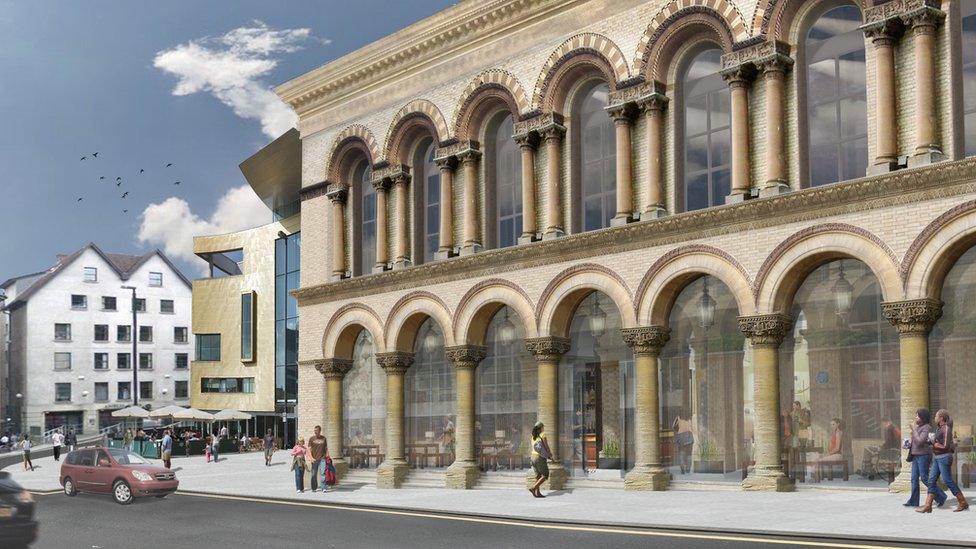Bristol Beacon renovation costs expected to double
- Published
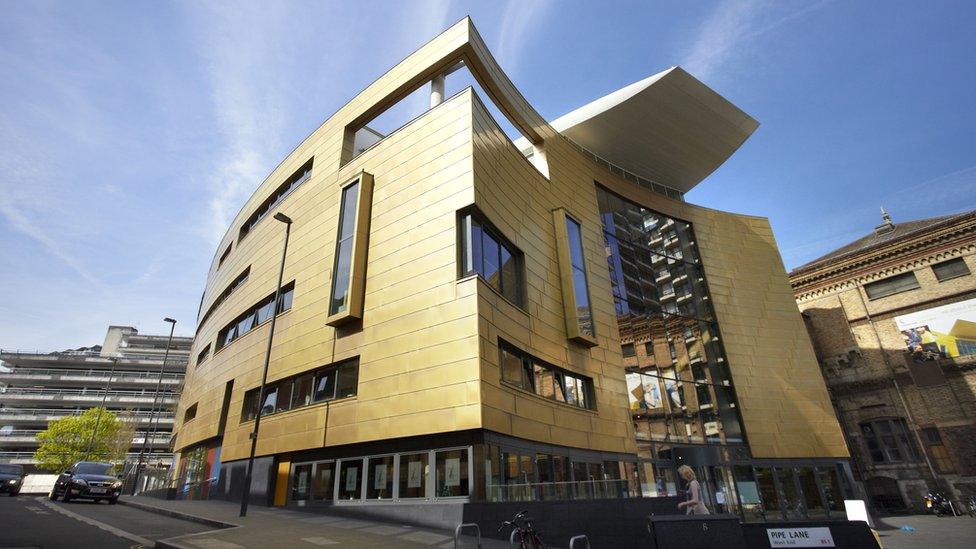
The Bristol Beacon foyer was in the first phase of the renovations and opened in 2009
The estimated cost of refurbishing the Bristol Beacon concert hall has more than doubled to about £107m.
Bristol City Council said the dramatic rise in costs was due to "previously unknown major structural issues".
Asbestos, hollow support pillars that need replacing and Elizabethan well shafts were among some of the more serious problems uncovered.
One opposition councillor said there needed to be more scrutiny of the building costs.
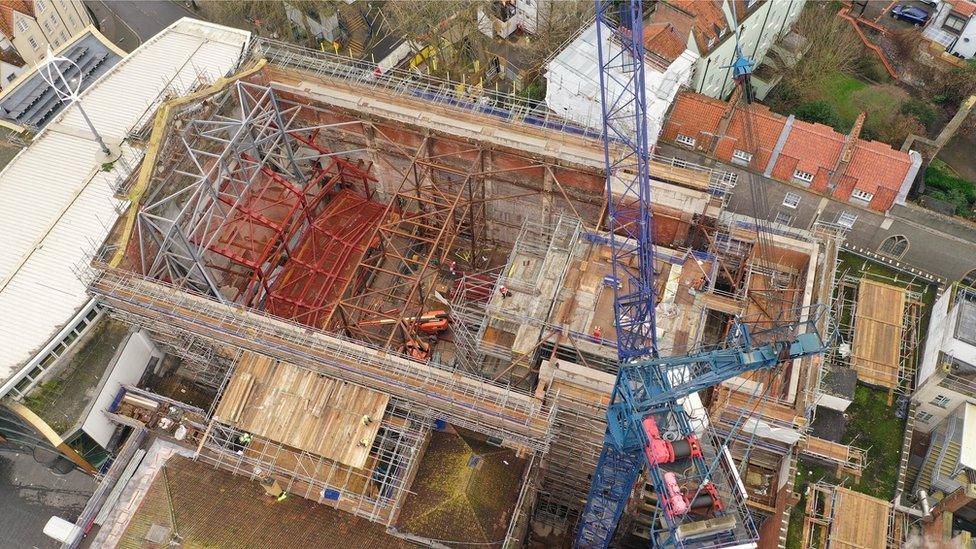
Much of the original venue has been removed
The problems discovered "far outstripped the worst-case scenarios contemplated", according to a new report, external, prepared ahead of a Bristol City Council cabinet meeting on 9 March.
Originally set at £48.8m in 2018, and revised to £52.2m a year later, the expected cost of the project has now risen to £106.9m.
The council, which owns the building formerly known as the Colston Hall and run by the Bristol Music Trust charity, will bear the majority of the increased costs.
According to the report, £44.5m would come from the council, with the rest from Arts Council England, the West of England Combined Authority (WECA) and the Bristol Music Trust.
The council said following an "exhaustive building and programme review" it was confident the work needed to reopen could be completed by October 2023.
Bristol's Labour city mayor Marvin Rees said it was right to continue to work on the "iconic" venue.
"Pausing or abandoning the project would be an irretrievable loss to the city, its arts and culture organisations and citizens," he said.
The 1950s concert venue was originally due to reopen in 2020
The 150-year-old music venue is the largest in the city and needs extensive modernisation.
According to a report compiled, external by accountants KPMG in 2017, the restored venue could contribute more than £250m to Bristol's economy in the 20 years after reopening, and create hundreds of jobs.
The chairman of Bristol City Council's communities scrutiny commission Anthony Negus said the issues which have pushed the renovation bill higher should have been anticipated, due to the age of the venue and its city centre location.
"Like any proud Bristolian I want our city to have a nationally-acclaimed concert hall," the Liberal Democrat councillor said.
"But I also want to be sure we are getting value for money so that we have resources to maintain services like social care and to restore cuts like those to public toilets and affordable housing."
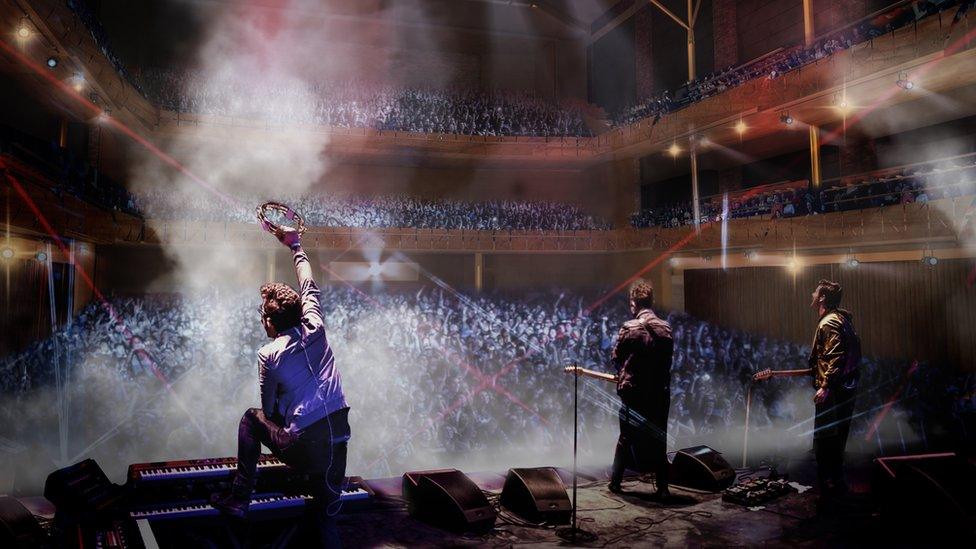
The transformation includes a new main hall
Related topics
- Published3 October 2019
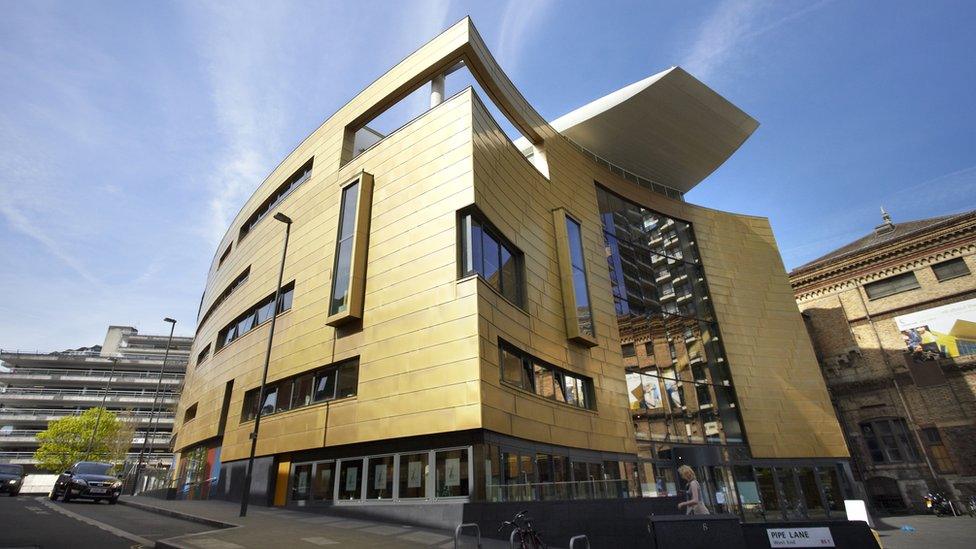
- Published1 May 2018
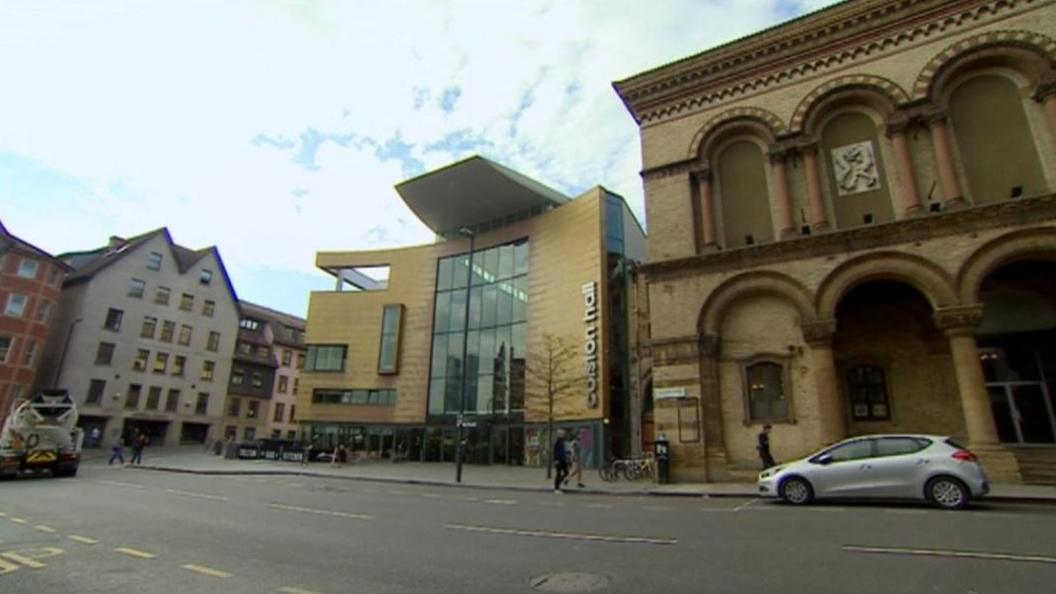
- Published22 November 2016
